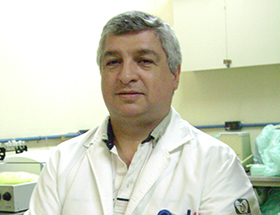
Amoebiasis caused by Entamoeba histolytica is associated with high morbidity and mortality is becoming a major public health problem worldwide, especially in developing countries. Because of the side-effects and the resistance that pathogenic protozoa build against the standard antiparasitic drugs, e.g., metronidazole, much recent attention has been paid to plants used in traditional medicine around the world in order to find new antiprotozoal agents. We collected 32 plants used in Northeast Mexican traditional medicine and the methanolic extracts of these species were screened for antiprotozoal activity against E. histolytica trophozoites using in vitro tests. Only 18 extracts showed a significant inhibiting activity and among them six plant extracts showed more than 80% growth inhibition against E. histolytica at a concentration of 150 µg/mL and the IC50 values of these extracts were determined. Lippia graveolens Kunth and Ruta chalepensis Pers. showed the more significant antiprotozoal activity (91.54% and 90.50% growth inhibition at a concentration of 150 µg/mL with IC50 values of 59.14 and 60.07 µg/mL, respectively). Bioassay-guided fractionation of the methanolic extracts from these two plants afforded carvacrol (1) and chalepensin (2), respectively, as bioactive compounds with antiprotozoal activity.










